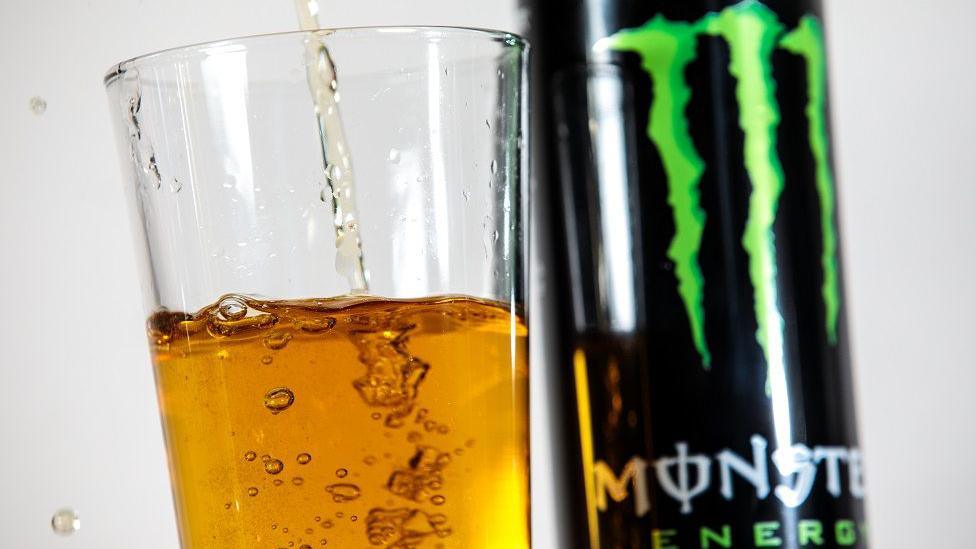Labour would ban under-16s buying energy drinks

- Published
Under-16s will be banned from buying high-caffeine energy drinks in England, if Labour wins 4 July's general election.
Drinks such as Monster, Prime and Red Bull would be blocked from sale, to protect children's health - but Coca-Cola and Lucozade would not be covered by the ban.
The proposal was welcomed by TV chef Jamie Oliver, who said on X, formerly known as Twitter:, external "You would be amazed if you saw how many kids have breakfast in the form of an energy drink."
Children were "bouncing off the walls" in the classroom, so teachers had to resort to "plan-B or plan-C" lessons, he said.

The Conservatives had planned to ban under-16s from buying energy - but the move was scrapped over concerns about "nanny state", external meddling in personal choices.
Most UK supermarkets have introduced a voluntary ban on the sale of energy drinks to under-16s.
In January, a review of the health impact of energy drinks on children highlighted links to more risks than previously thought, such as anxiety, stress and suicidal thoughts.
The packaging on the drinks often says they are not suitable for children, and yet they can be easily bought by under-18s from corner shops, the researchers found.
It is a huge and growing market, and up to a third of UK children drink them every week., external
Under Labour's plans, drinks containing more than 150mg (0.03 teaspoons) of caffeine per litre (a pint and three-quarters) would be banned from sale, in retail outlets and online, to under-16s.
Drinks such as Coca-Cola and bottled Lucozade fall under the limit, Labour says.
But a 500ml can of Monster Energy contains 160mg - equivalent to more than three shots of espresso or five cans of Coca-Cola.
Labour's shadow health secretary Wes Streeting warned children were attending school "wired on the equivalent of three shots of espresso, from these toxic drinks".
"It stops them sleeping, damages their mental health.
"How on Earth do we expect children to learn with that in their system?"
'Several espressos'
Shops would have to check ID if they thought buyers could be under age, as they currently do with alcohol and tobacco.
Trading-standards officers would police the ban and retailers face fines of up to £2,500.
Asked why Labour would not include other high-caffeine drinks such as some coffees, leader Keir Starmer said: "Because this is aimed at children and the sort of drinks that at the moment, the energy drinks, that they are drinking.
"I mean Monster, I think, is the number one.
"Just to give you a sense of that - the caffeine in that is the equivalent of several espressos, which is why it's having such an effect on children's behaviour.
"Talk to anyone who's in a school and they'll tell you what the problem is."
The Lib Dems says they would extend the "sugar tax" on soft drinks to juice-based and milk-based drinks that are high in added sugar.
In Scotland, meal deals are to be stripped of crisps and fizzy drinks under SNP plans to tackle an obesity crisis.
Reacting to Labour's announcement, Gavin Partington, director general of the British Soft Drinks Association, said: “In line with and in the spirit of our own long-standing Code of Practice, BSDA members do not market or promote the sale of energy drinks to under 16s and label all high-caffeine beverages as ‘not recommended for children’, so we welcomed the move by retailers to voluntarily restrict sales to under 16s."
He urged any move to ban sales of energy drinks to be "evidence based".